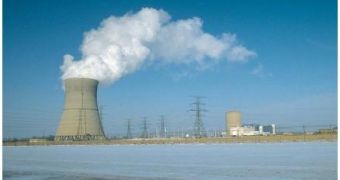American citizens are not very fond of nuclear powerplants, in fact, of anything that involves the word "nuclear." This is somewhat understandable considering that for half a century they lived with the constant threat of global nuclear war, caused by the arms race and constant showoffs from both the former Soviet Union and their country.
Now, a recent survey shows that the general public is increasingly unhappy with oil and more willing to develop alternative energy sources like wind and solar. 1200 citizens where questioned about different types of energy and the results indicated growing concern about global warming, but an apparent reluctance to pay to fight it, as the percentage of people who want to increase nuclear power use has grown from 28 percent to 35 percent.
"We're trying to understand what public policy in the U.S. should do to encourage new kinds of energy development or different patterns of energy consumption," said Professor Stephen Ansolabehere, the MIT political scientist who conducted the survey through Knowledge Networks, a consumer information company.
They are mostly concerned about storing nuclear waste and these concerns make "getting the public behind a serious expansion of nuclear power in the U.S. is going to be difficult," Ansolabehere said.
Actually, nuclear power, a type of nuclear technology involving the controlled use of nuclear reactions to release energy for work including propulsion, heat, and the generation of electricity, is much safer that the oil industry, if handled properly.
As of 2004, nuclear power provided 6.5% of the world's energy and 15.7% of the world's electricity, with the U.S., France, and Japan together accounting for 57% of all nuclear generated electricity. The United States produces most nuclear energy in numbers, with nuclear power providing 20% of the electricity it consumes, while France produces the highest percentage of its electrical energy from nuclear reactors-80% as of 2006.
Whether nuclear energy applications will become more appreciated with US citizens in the future is a very good question, especially since the oil prices in the country are rising, despite the vast amounts of oil available in the now "liberated" Iraq.

 14 DAY TRIAL //
14 DAY TRIAL //